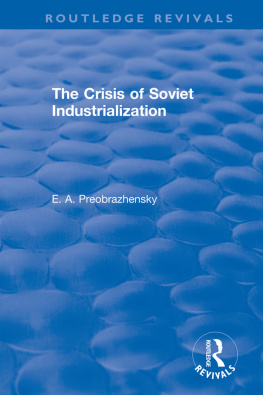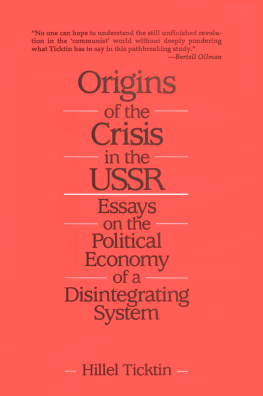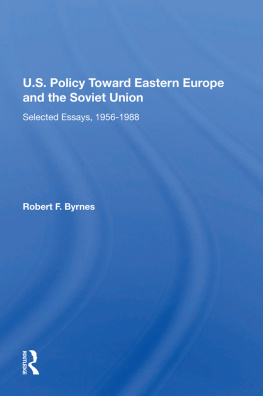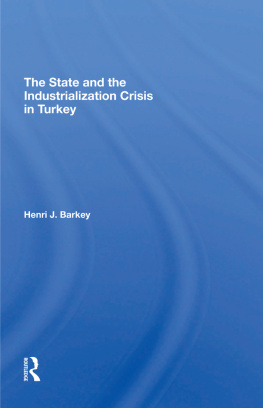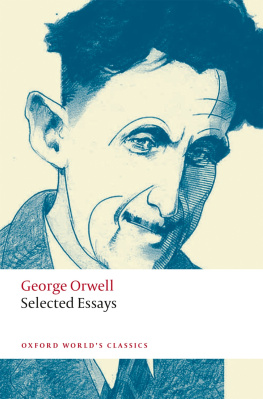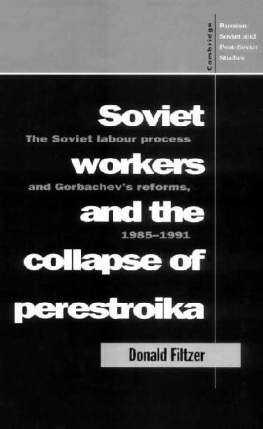Filtzer Donald A. - The crisis of Soviet industrialization: selected essays
Here you can read online Filtzer Donald A. - The crisis of Soviet industrialization: selected essays full text of the book (entire story) in english for free. Download pdf and epub, get meaning, cover and reviews about this ebook. City: Soviet Union, year: 2018, publisher: Taylor & Francis (CAM);Routledge, genre: Politics. Description of the work, (preface) as well as reviews are available. Best literature library LitArk.com created for fans of good reading and offers a wide selection of genres:
Romance novel
Science fiction
Adventure
Detective
Science
History
Home and family
Prose
Art
Politics
Computer
Non-fiction
Religion
Business
Children
Humor
Choose a favorite category and find really read worthwhile books. Enjoy immersion in the world of imagination, feel the emotions of the characters or learn something new for yourself, make an fascinating discovery.
- Book:The crisis of Soviet industrialization: selected essays
- Author:
- Publisher:Taylor & Francis (CAM);Routledge
- Genre:
- Year:2018
- City:Soviet Union
- Rating:3 / 5
- Favourites:Add to favourites
- Your mark:
- 60
- 1
- 2
- 3
- 4
- 5
The crisis of Soviet industrialization: selected essays: summary, description and annotation
We offer to read an annotation, description, summary or preface (depends on what the author of the book "The crisis of Soviet industrialization: selected essays" wrote himself). If you haven't found the necessary information about the book — write in the comments, we will try to find it.
The crisis of Soviet industrialization: selected essays — read online for free the complete book (whole text) full work
Below is the text of the book, divided by pages. System saving the place of the last page read, allows you to conveniently read the book "The crisis of Soviet industrialization: selected essays" online for free, without having to search again every time where you left off. Put a bookmark, and you can go to the page where you finished reading at any time.
Font size:
Interval:
Bookmark:

The Crisis of Soviet Industrialization
Selected Essays
E.A. Preobrazhensky
Edited and with an Introduction by Donald A. Filtzer

First published 1979 by M.E. Sharpe
Reissued 2018 by Routledge
2 Park Square, Milton Park, Abingdon, Oxon OX14 4RN
711 Third Avenue, New York, NY 10017, USA
Routledge is an imprint of the Taylor & Francis Group, an informa business
Copyright 1979 by Taylor & Francis.
No part of this book may be reprinted or reproduced or utilised in any form or by any electronic, mechanical, or other means, now known or hereafter invented, including photocopying and recording, or in any information storage or retrieval system, without permission in writing from the publishers.
Notices
No responsibility is assumed by the publisher for any injury and/or damage to persons or property as a matter of products liability, negligence or otherwise, or from any use of operation of any methods, products, instructions or ideas contained in the material herein.
Practitioners and researchers must always rely on their own experience and knowledge in evaluating and using any information, methods, compounds, or experiments described herein. In using such information or methods they should be mindful of their own safety and the safety of others, including parties for whom they have a professional responsibility.
Product or corporate names may be trademarks or registered trademarks, and are used only for identification and explanation without intent to infringe.
Publishers Note
The publisher has gone to great lengths to ensure the quality of this reprint but points out that some imperfections in the original copies may be apparent.
Disclaimer
The publisher has made every effort to trace copyright holders and welcomes correspondence from those they have been unable to contact.
A Library of Congress record exists under LC control number: 78073225
ISBN 13: 978-1-138-89676-5 (hbk)
ISBN 13: 978-1-138-89678-9 (pbk)
ISBN 13: 978-1-315-17904-9 (ebk)
Dedicated to the memory of Isaac Deutscher. More than any other thinker of the postwar years , he helped make clear to my generation that despite the turmoils of the last half-century, socialism and Marxism are still relevant to human needs.
Thanks must go, first and foremost, to Michel Vale, a colleague and friend of many years, who helped me to initially organize this project and gave me intellectual encouragement to learn Russian and to make a proper study of the Soviet Union, and Preobrazhensky in particular. Without his further practical assistance in editing some of the translations when my time was short, I do not think this book would ever have been finished. Thanks also to Hillel Ticktin, editor of the journal Critique, who, in addition to providing important theoretical guidance in the course of supervising my Ph.D. thesis at the University of Glasgow, also helped iron out some of the thornier terminological problems in the texts. Despite the intellectual debt I owe to both these people, it goes without saying that they bear none of the responsibility for whatever shortcomings remain in this volume.
Finally, acknowledgement is due to Alec Nove and Alexander Erlich for helpful criticisms and comments on the Introduction and notes to this collection, or on my Ph.D. thesis, that directly or indirectly found their way into the present volume.
by Donald A. Filtzer
With the revival of interest in Marxist ideas over the past ten or so years, Evgeny Preobrazhensky, one of the leading political and intellectual figures to emerge from the Bolshevik Revolution, has become known to a far wider circle than just the occasional specialist in Soviet history. For the first time, English-speaking scholars who did not know Russian were able to assess firsthand Preobrazhensky's contribution to the early years of Soviet economic theory and the relevance of his discussions of Soviet industrialization to problems facing the contemporary neocolonial world. Unfortunately, since then we have had only one other translation of an important Preobrazhensky work, From NEP To Socialism. A glance at the bibliography of Preobrazhensky's major writings at the end of this book will show a significant body of valuable material that remains accessible only to those who read Russian. We hope, of course, that the present book will go some way toward filling this gap, but we by no means consider our effort sufficient.
As we have had cause to note in a previous essay,encompassed such problems as the development of working-class culture in postrevolutionary society, the history of socialist thought, the theory of money and questions of finance and inflation under the capitalist and Soviet systems, the theory of capitalist crises, and, of course, the theory of economic development in the USSR.
The volume and theoretical sophistication of his writings appear all the more impressive when it is remembered that he was truly a self-made scholar, having had only a high-school education and having been a full-time (and leading) Bolshevik militant from his mid-teens onward. Nor can anyone doubt his political courage and skill, for it was precisely the years of intense political struggle inside the Bolshevik Partya struggle in which Preobrazhensky played one of the two or three leading roles within the Trotskyist Oppositionthat saw his most abundant and fruitful intellectual output. This is not to gloss over Preobrazhensky's sudden political collapse, when after years of fighting against Stalin's growing incursions on Party democracy and against the catastrophic policies of Party leadership, he was one of the first Oppositionists to break under the strains of exile and isolation and make his peace with the man Trotsky had so aptly called the "gravedigger of the revolution." Such acts are to be explained, perhaps, but never justified.
Preobrazhensky was born in 1886 in the town of Bolkhov in Orel Province. His father was a priest, and Preobrazhensky was to attribute much of his early radicalism to his reaction against what he termed "all the religious quackery" he could see going on around him. Although he attended the gymnasium, he did not continue his studies on leaving school. He had already become a political militant by the age of 15, and with a friend had founded his own political school journal. Soon, however, Preobrazhensky graduated to more sophisticated political activity. At 17 he joined the Russian Social Democrats, and by 1905 had already led a general strike of educational institutions in Orel. It is worth reflecting on this early history, because it indicates that Preobrazhensky was a completely self-taught scholar and theoretician. The types of clandestine literature he read during these early days in politics were to greatly influence his later theoretical preoccupations: the history of culture, general and revolutionary history, and basic works in political economy. It is equally notable that unlike many other great Bolshevik leaders of erudition, Preobrazhensky did not spend time abroad, nor even in the "cultured" metropolises of Petersburg and Moscow, but had his political activity confined to organizing work in the Russian provinces.
In the years following, and through the time of the Civil War, Preobrazhensky was assigned by the Bolsheviks to the Urals, where he was to do most of his political workby and large in positions of responsibility. He spent these years constantly on the run from the tsarist police, and was apprehended, jailed, or exiled, on more than one occasion. When the February revolution broke out in 1917, Preobrazhensky was part of a Bolshevik minority that did not support Prince Lvov's provisional government, and was one of the early supporters of Lenin's April Theses.From this early date Preobrazhensky was to find himself on the left of intra-Party disputes.
Font size:
Interval:
Bookmark:
Similar books «The crisis of Soviet industrialization: selected essays»
Look at similar books to The crisis of Soviet industrialization: selected essays. We have selected literature similar in name and meaning in the hope of providing readers with more options to find new, interesting, not yet read works.
Discussion, reviews of the book The crisis of Soviet industrialization: selected essays and just readers' own opinions. Leave your comments, write what you think about the work, its meaning or the main characters. Specify what exactly you liked and what you didn't like, and why you think so.

